

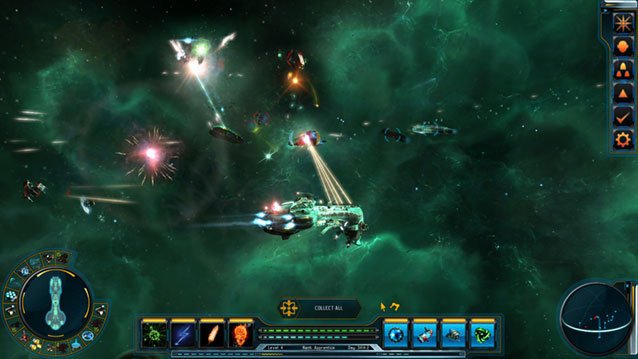
It's an exciting time to love space. We've put a lander on a comet. We've seen the clearest image yet of planets forming around a star. And their video games, after a bit of an absence, aren't hurting either. Little Green Men Games' Starpoint Gemini 2 is one of the latest titles of its reemergence, a space trading and combat sim that blends RPG mechanics and a large universe together for a solid if not problem free adventure.
Starpoint Gemini 2's campaign is set in the embattled Starpoint system, a rebellious territory under siege by an empire. You play a young man named Adrian, son of legendary freedom fighter Gabriel Faulkner, who begins a quest for revenge after his father is assassinated by a shadowy organization. In his final message, he bids you to recover hidden data cores that could answer the circumstances of his death, why the empire is too scared to press their advantage, and the identities of the villains hiding behind the curtains.
I love a good murder mystery, especially if its plot is weeded with conspiracy, but Starpoint Gemini 2's does little to stimulate much interest. Adrian is about as charismatic as cardboard, with lines and acting delivered absent of any energy. It's not easy to care about his motivations when he sounds like he doesn't, either. The same is true of the supporting cast. And if this is your first entry in the series, it does a poor job explaining who those major players and factions are. Instead, it carries on as if you already know them.
The game fares better when you're left to your own devices. A freeroam mode exists from the onset or you can simply ignore the story missions altogether. Spread across its expansive map - after nearly 20 hours I've only uncovered about a third of its fog of war - are countless opportunities. Freelance missions reveal themselves as you explore, sending you on kill, capture, science, repair, and escort objectives. Bounties against named targets offer huge payouts or you can carve your path to riches through piracy, looting the carcases of dead hulls for their treasures.
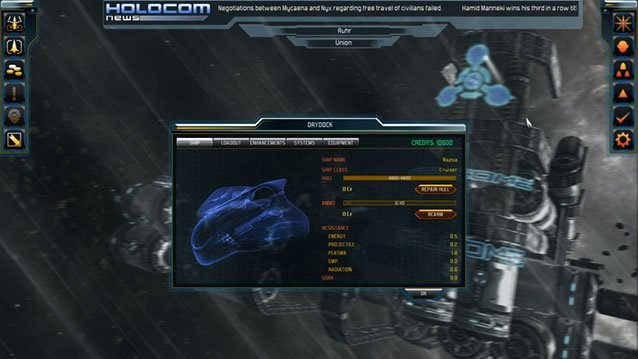
A limited economy exists, as well. Individual sectors and stations have their own goods, and a helpful database tells you where to find the best buy and sell prices. It can even be sorted by items only in your cargo. That's a feature I'd like to see show up more often in other, similar games.
Despite the volume of tasks, the actual mission variety is sadly. They typically ask the same thing every time, given to you in cold text form with no character behind them. Nor are they particularly lengthy, complicated endeavors, save for the occasional long distance trek. Go here. Scan this anomaly. Done. They're important tasks, but these small, repetitive quests left me feeling like I was grinding rather than sprinting toward my goals.
And yet Starpoint Gemini 2 can be hard to put down. Its hearty RPG foundation and mechanics make for an addicting experience. Transferring yourself from a simple gunship armed with only a scant few cannons to a massive carrier backed by a fleet and dozens of batteries is a powerful drive.
The wealth and experience earned are all in service of acquiring and upgrading those vessels, but before you start that trek you'll need to select one of three specializations. Each has a unique set of four abilities. The Commander, Engineer and Gunner generally emphasize buffs, debuffs and damage respectively. As you accrue experience you'll level up and earn ability points to improve their effectiveness, spending on them several traits within. If you're unhappy with your decision, there is an an option to respec for a percentage cost.
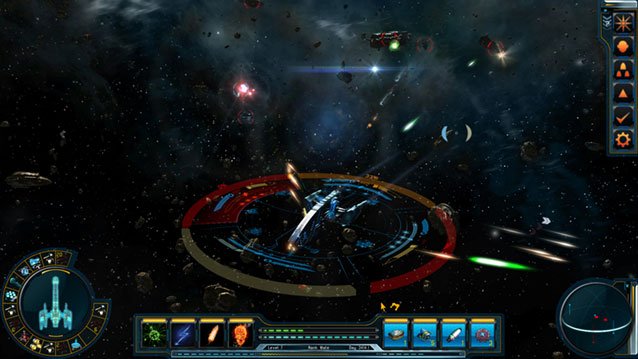
Most importantly, every five levels also increases your rank, allowing you to pilot new tiers of ships. There are around 75 of them in the game, and they can perform quite differently from each other even within the same class. For example, one frigate may come equipped with a cloaking device while another focuses on greater storage capacity.
How you want to play Starpoint Gemini 2 can be further tailored through a healthy amount of customization. A wide range of weapons, both light and heavy, are available for purchase or found as loot, in addition to passive system upgrades, named crewmen to enhance various attributes, and mercenary ships. Some weapon types do seem better than others - railguns in particular - but I still love being overwhelmed with the dilemma of choice for equipment.
Unleashing those acquisitions is enjoyable thanks to a satisfying division of strength between ship classes. Managing power levels, firing arcs and the timing of abilities adds and extra layer of welcome depth to the game's encounters. That said, combat isn't particularly challenging. It's all too easy to abuse friendly AI to let them manage weight of the fighting while you mop up the experience and loot from a safe distance, or to enter a target's blind spot and plink away at their health up close. And if you're a bad shot, which may not be helped by the game's poor camera and movement controls, an auto-firing mode is available to take away the hassle of actually shooting a moving target yourself.
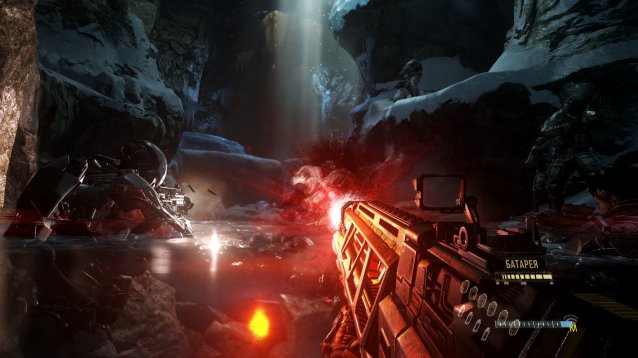
Difficult or not, the fact that ships can be forcibly taken in combat rather than simply bought kept me on the hunt. It's ultimately a numbers game - close the distance, wear down their hull to kill some of their crew, press a button to transport over troops and watch the counters dance - but the mechanic was enough to push me into a "gotta catch 'em all" state, prowling territory for targets I hadn't seen before. Capturing and selling them is also the quickest way to earn huge sums of money, which you'll need to pay the salary of any hired hands. They don't come cheap.
It's all generally pleasing on the eyes, too. Asteroids cast long streaks of shadows against the binary stars. Planets, surrounded by artful nebulas, are fair with detail. There are picturesque moments that could belong on the cover of my favorite sci-fi novels. I only wish it performed as well as it looked. Crashes were frequent during my playtime. Be prepared to save often.
Starpoint Gemini 2 isn't the most profound release in a genre that's been promising some imagination inspiring experiences in the near future. Even so, the fog of war of its vast map begs me to clear it, hiding ships and upgrades that I just need to collect. There are a lot of toys here to play with, even if the world around them is somewhat simplistic, but that might just be enough to keep me occupied for another 20 hours.
7/10
A copy of the game was provided by the publisher for the purpose of this review.


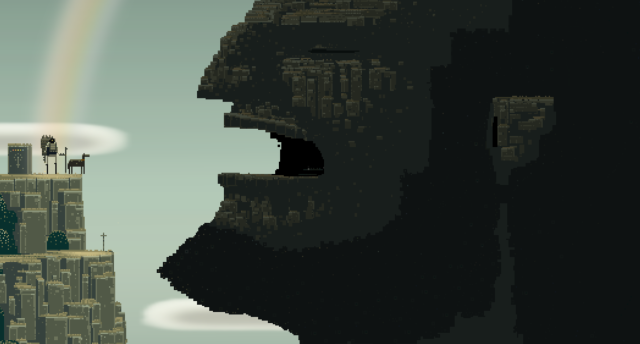

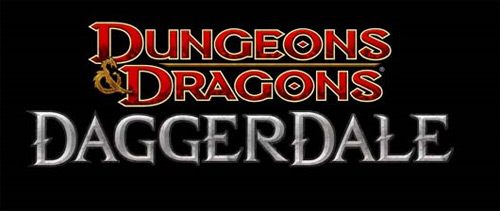 Dungeons & Dragons: Daggerdale Achievements
Dungeons & Dragons: Daggerdale Achievements Witcher 3: Hearts of Stone - The Drakenborg Redemption Quest Guide
Witcher 3: Hearts of Stone - The Drakenborg Redemption Quest Guide Titanfall Pilot Weapons Guide
Titanfall Pilot Weapons Guide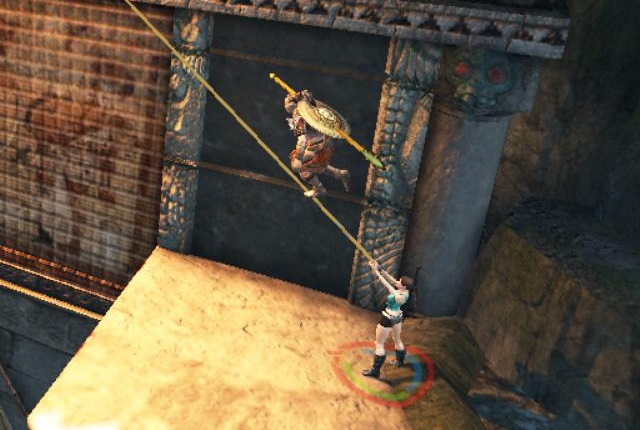 Escape The Dungeon Crawl: 4 Co-Op Campaigns Without Loot Grinding
Escape The Dungeon Crawl: 4 Co-Op Campaigns Without Loot Grinding Watch Dogs Notoriety and Skill Points Wiki
Watch Dogs Notoriety and Skill Points Wiki